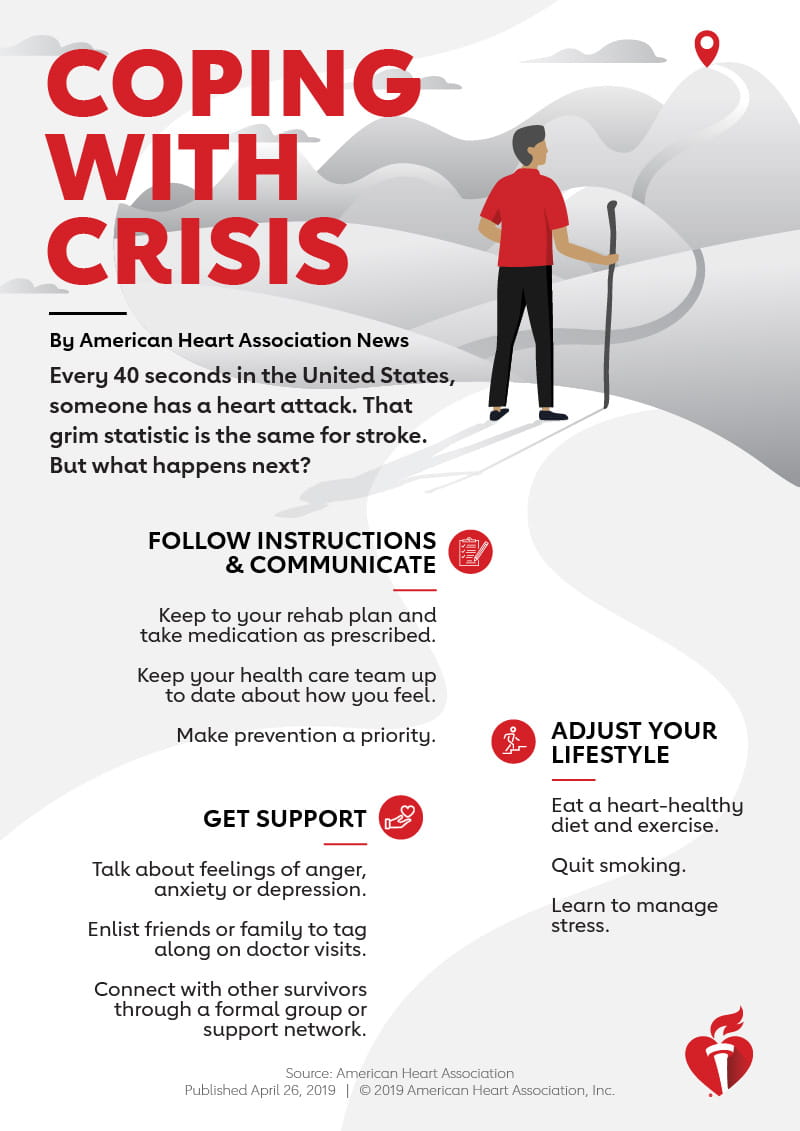Steps to prepare your body – and pocketbook – for retirement
By American Heart Association News

As people approach retirement and plan for expenses, health care is high on the checklist. Out-of-pocket medical costs will inevitably arise, but taking healthy steps heading into the golden years can help avert costly doctor visits, prescriptions and medical treatments.
"Our challenge as a society is to impress upon folks that they have some control over their health," said Dr. Steven Houser, director of the Cardiovascular Research Center at Temple University School of Medicine in Philadelphia.
Avoiding illnesses and chronic medical conditions in later life also contributes to a better quality of life, he said. "It's not sufficient to live longer if you're not healthy."
Nearly half of adults in the United States are living with some type of cardiovascular disease, and heart disease is the nation's leading cause of death.
Cardiovascular disease, which refers to a number of heart and blood vessel conditions, has become the nation's costliest chronic disease. Expenses associated with it are expected to soar in future decades as baby boomers age.

The overall cost of cardiovascular diseases, which includes stroke, totaled $351.2 billion between 2014 and 2015. Of that, direct medical costs accounted for $213.8 billion, and indirect costs from lost productivity and mortality totaled $137.4 billion. Total cardiovascular disease costs are projected to increase to $749 billion in 2035.
Heart attacks and coronary heart disease are two of the 10 most expensive conditions treated in U.S. hospitals. Meanwhile, other diseases and chronic conditions in older age also can affect a retiree's budget.
Diabetes, a contributor to heart disease, kidney failure and blindness, costs an overall $245 billion per year. Cancer, the second-leading cause of death in the U.S., is expected to reach nearly $174 billion in costs by 2020.
Houser, a past president of the American Heart Association, said taking action now to safeguard health can potentially limit future medical expenses.
There are exceptions, but medical research clearly shows a healthy lifestyle can help people live into older age without cardiovascular disease, he said. Cardiovascular health also is linked to brain health, a key concern in older age.
For ideal cardiovascular health, the AHA recommends managing blood pressure, controlling cholesterol, reducing blood sugar, getting physically active, eating a healthy diet, losing weight and quitting smoking.
It's all part of "a health culture" that can result in a longer, healthier life, Houser said. "It doesn't mean you can never have an ice cream cone. It doesn't mean you can't have a steak on occasion."
But making seemingly little changes add up to big health improvements:
– At work, move around rather than sitting continuously for hours at a desk. Consider using a standing desk and taking the stairs rather than the elevator. Many employers and health insurance policies offer wellness programs that include gym memberships, nutrition counseling and smoking cessation assistance.
– Get regular physical exams. It can be tempting to avoid annual checkups but seeing a health care provider regularly creates a baseline of information that will be useful years later when there's a change in your medical condition.
– To financially prepare for medical costs during retirement years, learn about Medicare, which is available starting at age 65. Have a backup plan to help pay for what it does not cover. A supplementary insurance plan can help fill the gaps.
"Medicare is great, but if you get really sick it's not going to cover all your costs," Houser said.
Worries about having comprehensive health insurance coverage keep many Americans working extra years to remain on an employer plan, he said.
Ultimately, the best strategy when looking ahead to retirement is maintaining good health, Houser said.
"We as a country need to work on this," he said. "We've got to have a holistic approach. We've got to keep at it."
If you have questions or comments about this story, please email [email protected].







